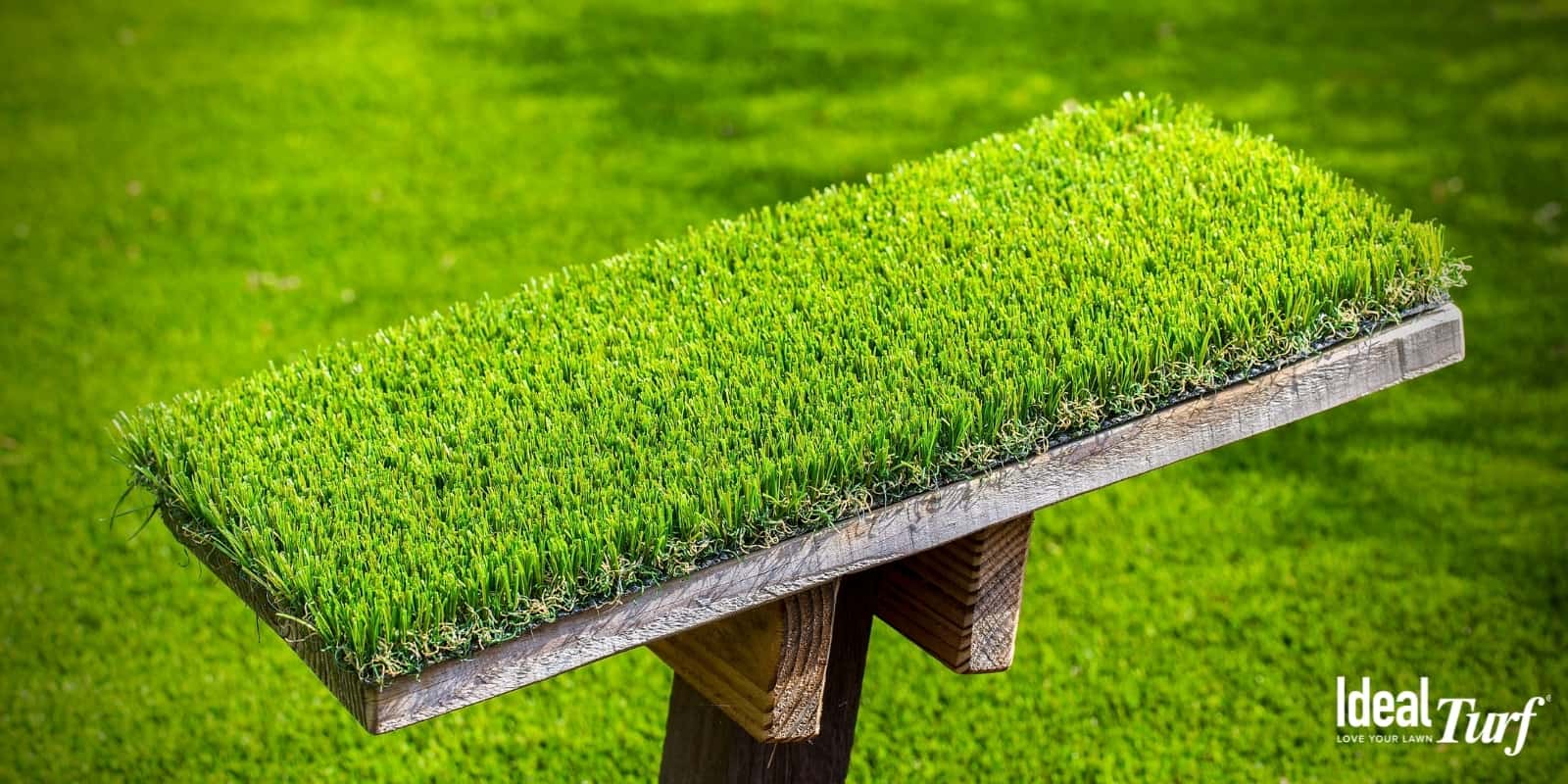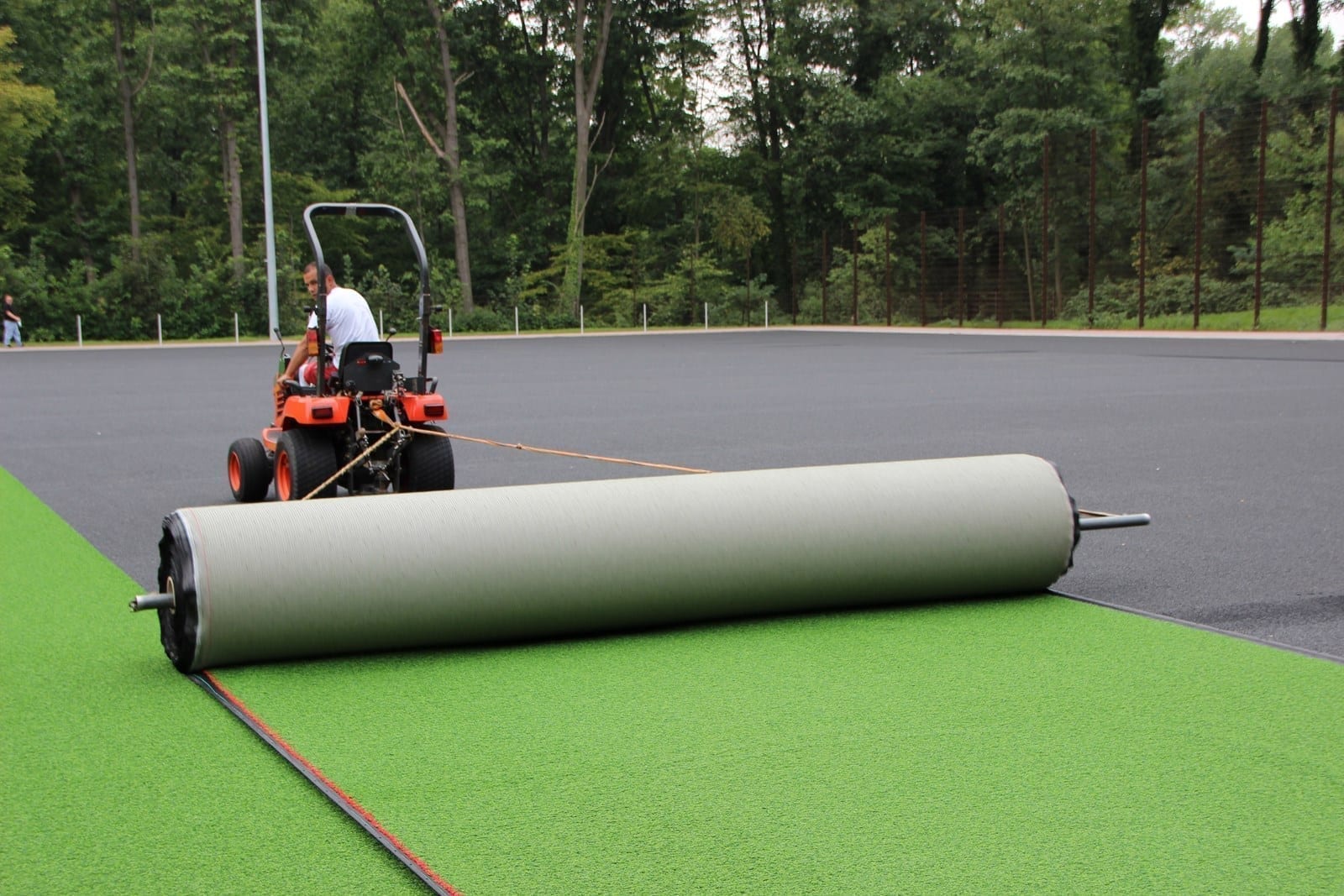Delve Into the Environmental Perks of Opting for Synthetic Grass Solutions
The fostering of synthetic grass remedies provides a compelling opportunity to address pushing environmental obstacles. By dramatically lowering water usage and reducing the application of harmful chemicals, these choices not only promote sustainable landscaping yet likewise protect regional environments. The reduced carbon impact connected with decreased upkeep activities contributes to a more sustainable strategy to land management. The implications of these advantages prolong beyond mere conservation initiatives, elevating questions regarding their lasting impact on habitat conservation and total ecological balance. Discovering these measurements reveals a complicated interaction worth thinking about.
Water Conservation Benefits
One of the most considerable benefits of synthetic grass is its capacity to conserve water. Standard grass yards call for substantial watering, specifically in locations vulnerable to dry spell or water constraints. In contrast, artificial turf does not need watering, dramatically lowering the overall demand for water resources. This attribute is specifically useful in deserts where water scarcity is a pressing problem.
By getting rid of the need for normal watering, synthetic lawn adds to sustainable landscape techniques and assists minimize the ecological impact of too much water usage. Furthermore, the conservation of water encompasses the decrease of runoff, which can bring about soil disintegration and river contamination.
Furthermore, the installation of synthetic grass allows towns and property owners to allocate water resources extra successfully, concentrating on crucial usages such as alcohol consumption water and farming. The shift in the direction of synthetic grass not just advertises liable water usage but likewise lines up with broader environmental goals aimed at preserving natural deposits.
As areas increasingly prioritize sustainability, the water conservation benefits of synthetic grass provide an engaging situation for its adoption in household and business landscape design projects.
Minimized Chemical Use
The change to man-made turf significantly decreases the reliance on chemical treatments typically utilized in all-natural turf upkeep. Traditional grass monitoring normally includes the application of herbicides, pesticides, and plant foods to promote development and control parasites. These chemicals can position risks to human wellness, neighborhood wild animals, and the atmosphere, adding to soil and water contamination.
In contrast, fabricated grass gets rid of the need for these dangerous substances. By minimizing the release of artificial compounds right into the environment, fabricated grass advertises much healthier dirt and water systems.
Moreover, the absence of chemical drainage connected with fabricated turf installations aids shield regional waterways from contamination, supporting aquatic life and preserving biodiversity. Artificial turf companies phoenix. As areas significantly focus on sustainable methods, selecting synthetic grass offers a sensible remedy that aligns with environmental conservation objectives. With this shift, residential or commercial property proprietors can enjoy lush environment-friendly spaces without endangering ecological health, paving the way for an extra sustainable future
Reduced Carbon Footprint

Furthermore, the installation of fabricated lawn can lead to considerable water conservation. All-natural yards need significant amounts of water for watering, which not only adds to the carbon footprint connected with water extraction and therapy however also pressures regional water resources. In contrast, synthetic grass requires minimal upkeep, needing no watering, consequently dramatically minimizing water use and its associated energy costs.
Furthermore, the longevity of synthetic grass adds to its decreased carbon impact. With a life expectancy of approximately 15 years or more, the requirement for regular replacements is decreased, leading to less waste and lower energy consumption in manufacturing and throwing websites away standard grass alternatives. Overall, synthetic grass offers a lasting option for eco mindful landscape design.
Environment Conservation
Environment preservation is an essential factor to consider in the discussion over landscaping choices, specifically when comparing man-made grass to natural grass. All-natural yard yards typically need extensive upkeep, including the use of fertilizers, herbicides, and chemicals, which can negatively affect regional ecological communities. These chemicals can seep into the dirt and waterways, damaging indigenous plants and animals and disrupting regional habitats.
In comparison, synthetic grass provides a chance to minimize the environmental footprint of landscaping. By going with artificial turf, house owners can decrease the disturbance of all-natural habitats connected with standard lawn care techniques. Fabricated grass removes the need for harmful chemicals, thereby securing nearby wildlife and preserving the honesty of bordering environments. The installment of synthetic grass can lead to the conversion of previous lawn locations into more biodiverse landscapes, such as pollinator gardens or native plant locations, which can sustain neighborhood wild animals.
Inevitably, the change to synthetic grass not just saves water and reduces upkeep initiatives but additionally fosters an extra unified partnership in between human tasks and the natural surroundings, advertising environment conservation in the process.
Long-Term Sustainability
Lasting sustainability is a vital consider assessing the advantages of synthetic grass over standard turf yards. Among the most significant advantages of synthetic turf is its durability; it can last approximately 15-20 years with marginal upkeep, whereas natural yard calls for regular reseeding and substitute. This durability decreases the need for consistent sources, such as water, plant foods, and pesticides, which are important for maintaining a go to this website healthy and balanced yard yard.
Furthermore, synthetic grass contributes to a decrease in carbon discharges linked with yard treatment equipment. Typical yards often need gas-powered lawn mowers, trimmers, and blowers, every one of which add to air contamination. Phoenix turf companies. In contrast, synthetic grass eliminates the demand for such equipment, promoting a cleaner environment
In addition, the manufacturing of synthetic grass increasingly makes use of recycled materials, enhancing its sustainability account. As suppliers take on green methods, the environmental footprint of synthetic grass proceeds to reduce.

Final Thought
The adoption of man-made turf remedies provides significant ecological advantages, consisting of substantial water preservation, reduced dependence on harmful chemicals, and a reduced carbon footprint. Moreover, synthetic grass aids in maintaining natural environments by minimizing land disruption and advertising long-lasting sustainability via using long lasting materials. Collectively, these aspects underscore the potential of synthetic grass to add favorably to environmental health and wellness and supply a practical choice to standard landscaping methods in an increasingly resource-conscious world.
In comparison, synthetic turf does not require watering, considerably lowering the general need for More Info water resources. By decreasing the release of artificial compounds into the ecological community, man-made lawn advertises healthier soil and water systems.
In addition, the setup of fabricated grass can result in considerable water preservation. In comparison, artificial turf needs very little upkeep, calling for no watering, therefore significantly reducing water usage and its associated energy costs.
